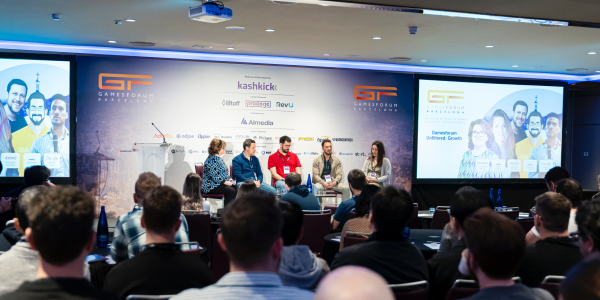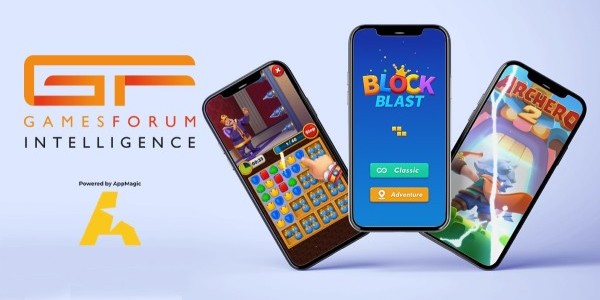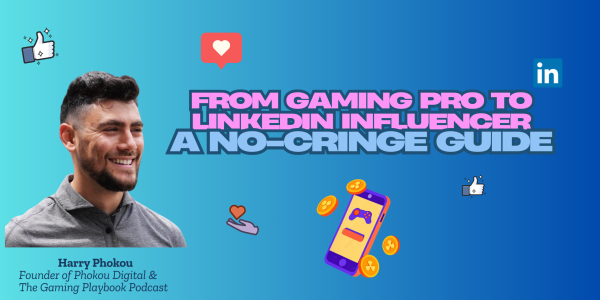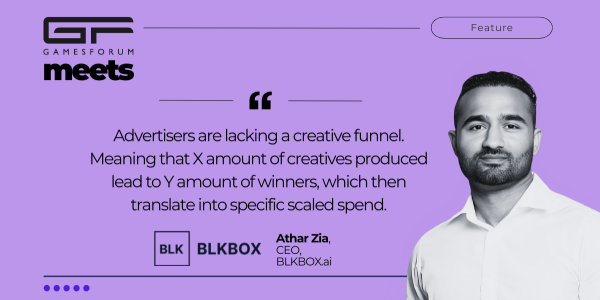From Game Updates to Game Ecosystems: The Next Era of Live Service Games


Ahead of moderating the Unfiltered Panel at Gamesforum Cyprus, Sergei Vasiuk, Live Ops Director at Wargaming, explores how live service games are evolving beyond traditional content updates. From hybrid PvEvP experiences to new monetization models focused on player identity and customization, he breaks down what studios must do today to stay ahead in the next era of live gaming.
Live service games are evolving. No longer just about continuous content updates, they are transforming into full-fledged ecosystems—platforms that engage players beyond gameplay.
The old model of live games revolved around a cycle of content drops, monetization tweaks, and retention-driven events. That still matters, but it's no longer enough. By 2030, the winners will be those who create lasting engagement loops that extend outside the game itself. With over 3.8 billion players worldwide by the end of the decade, studios must rethink how they manage live games. Instead of seeing LiveOps as an operational layer, they must treat it as a competitive advantage. So, what does that shift look like? Let’s break it down.
Game as a Platform: The Future of Live Service Games
Live games are becoming platforms, not just products. By 2030, leading games will:
• Host multiple gameplay experiences. Think Fortnite, which evolved from a battle royale into a full UGC-driven ecosystem
• Seamlessly integrate with other entertainment forms. Expect more collaborations between games, film, music, and social media
• Enable player co-creation. Future games will ship with built-in modding tools, allowing the community to generate content—reducing dev workload while keeping engagement high
This means that LiveOps teams won’t just manage events anymore—they will oversee player-driven economies, community-created content, and digital social hubs.
What developers should do:
✔ Build UGC tools that let players create their own experiences
✔ Shift monetization from FOMO-driven purchases to long-term engagement strategies
✔ Develop LiveOps content that blends competition, collaboration, and entertainment
LiveOps Without Borders: Extending Player Engagement Beyond Gameplay
Traditionally, LiveOps teams focused on in-game events. That approach must evolve. The best performing games in the late 2020s will expand engagement beyond the game client itself.
A player’s journey no longer starts and ends in the game. They interact with communities on Discord, Reddit, Twitch, and TikTok. Out-of-game events will drive in-game engagement. Imagine players earning in game rewards by watching a Twitch stream, attending a virtual concert, or completing a community-driven challenge.
Personalized content ecosystems will replace generic updates. The era of mass-market battle passes will decline in favor of dynamically personalized events tailored to individual playstyles. What studios should implement today:
✔ Build LiveOps strategies that span multiple platforms—in-game, social media, and third-party ecosystems
✔ Leverage AI-driven personalization to recommend content, challenges, and purchases to players based on behavior
✔ Use data-driven storytelling—let the community influence the narrative of live games
Why Not Both? Hybridization is the Future
The barriers between PvE and PvP are disappearing. More games will combine cooperative and competitive elements in ways that keep players engaged. Battle Royale games will introduce story-driven events. (Fortnite has already done this, but expect even deeper integration.)
MMOs will feature competitive social economies. (New World experimented with this—expect future games to refine the model.)
PvEvP will become the norm. Games will create persistent worlds where players compete, collaborate, and shape the environment dynamically. Why does this matter? Because LiveOps teams need to design events that cater to both PvE and PvP players—within the same ecosystem
🛠 What studios can do now:
✔ Develop event-driven narratives that combine cooperative and competitive goals
✔ Build adaptive matchmaking systems that let players choose their level of competition dynamically
✔ Experiment with player-driven content, social guilds, and open-world PvEvP mechanics
Monetization: From FOMO to Value-Based Models
The monetization landscape is shifting. Players are less tolerant of exploitative models and more willing to pay for meaningful content. By 2030, battle passes will be replaced by modular, flexible progression systems.
Subscription-based VIP passes will grow. Players will expect flat-rate benefits across multiple games. The demand for social rewards will rise. Cosmetics, leaderboards, and clan-based achievements will drive spending more than power boosts.
Monetization strategies that will work in 2025-2030:
✔ Focus on player identity and customization
✔ Develop rewards-based monetization, where engagement earns currency redeemable for in-game content
✔ Offer modular progression—letting players buy into the content they want, rather than rigid season passes
The LiveOps Team of the Future
As games become platforms, not products, LiveOps teams must expand their skill sets. Tomorrow’s LiveOps teams will:
• Manage social ecosystems, not just in-game events
• Work with AI-driven analytics to dynamically adjust game balance
• Collaborate across marketing, community, and development to create seamless engagement strategies
🛠 How studios should adapt:
✔ Train LiveOps teams in behavioral analytics, community engagement, and social media trends
✔ Invest in automation tools that allow small teams to manage massive engagement platforms
✔ Build LiveOps workflows that prioritize player-driven content, not just developer-led updates
The Next Decade of Live Service Games
The next era of LiveOps will be about long-term engagement, community-driven content, and deeply personalized experiences.
By 2030, live service games will look more like digital theme parks—constantly evolving, shaped by both players and developers. The question is: Are studios ready for this shift? One thing is certain: Games that treat LiveOps as a strategic advantage—rather than a content delivery system—will lead the next decade of gaming
Don't miss Sergei's talk on the Unfiltered Panel at Gamesforum Cyprus! Get your Early Bird Conference Passes here.











